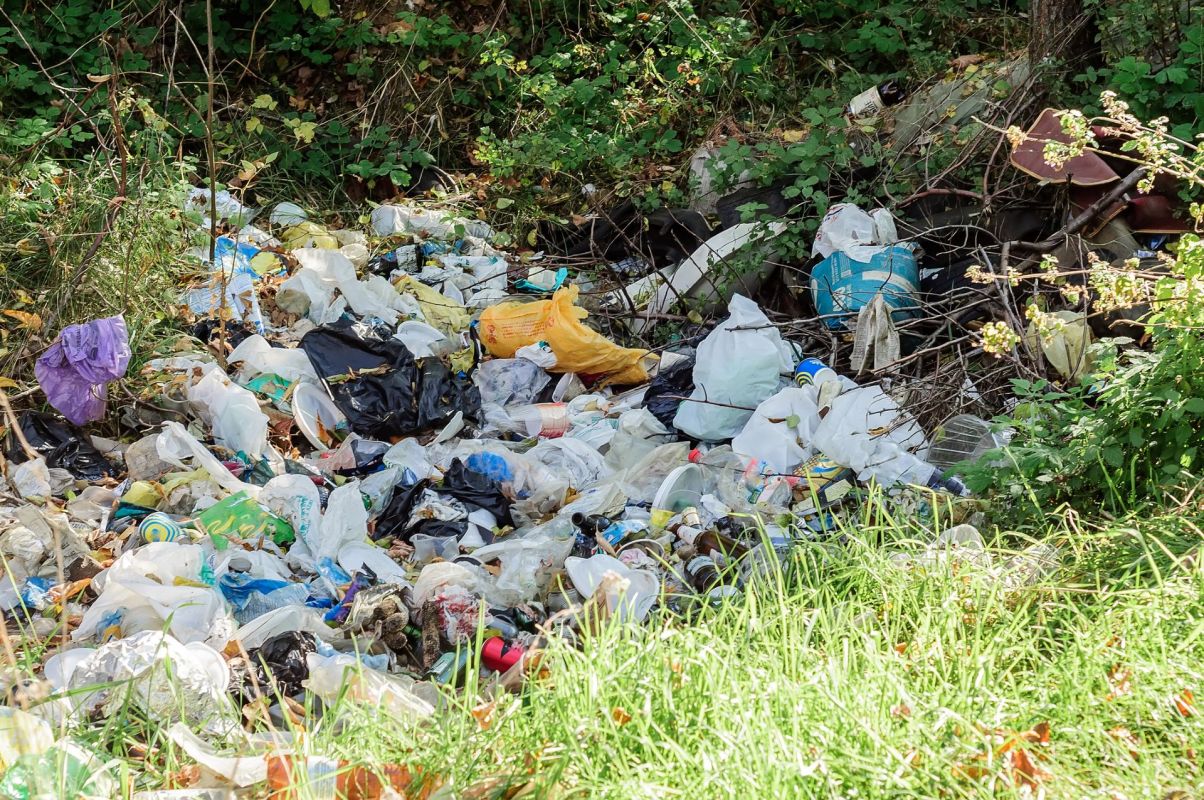Across the globe, plastic pollution is intensifying extreme flooding events, which were already increasing due to the overheating of our planet, according to a new report.
What's happening?
An accumulation of plastic pollution has left urban communities worldwide more vulnerable to the heavy rains and floods driven by climate change, which acts like steroids for the weather.
Plastic waste accumulates in cities' drainage systems, which means that flood water is slower to drain away. This makes extreme floods far more likely.
About 218 million people globally are at risk of plastic-aggravated flooding — equivalent to the combined populations of the U.K., France, and Germany — according to a study by Tearfund and Resource Futures.
Per the study, 41 million of these at-risk people are infants, elderly people, or people living with disabilities, who are all particularly vulnerable to the health problems that floods can pose.
The report warns that plastic-aggravated flooding is worsening as the volume of plastic waste around the globe continues to go up. Between 2000 and 2019, the annual production of plastic waste almost doubled to 389 million tons.
That increase, along with inadequate solid waste management, leaves items like plastic bags to clog up drains.
Why is this plastic pollution report concerning?
The report noted that flooding endangers lives in some of the world's most vulnerable communities, which are already projected to feel the worst effects of climate change.
Many of the people described in the report live in poverty in South Asia, East Asia, and Pacific and sub-Saharan Africa, where poor urban planning and infrastructure is exacerbating the floods.
Drowning is the leading cause of death linked to floods, but it is far from the only fatality risk. Getting caught in unsanitary water, which may be contaminated with fecal matter, can also cause fecal-oral disease, respiratory problems, and diseases like dengue.
Even those who survive flooding are likely to endure hardships afterward. In Bangladesh alone, 4.1 million people were displaced by extreme floods in 2019, which could increase to 13.3 million people by 2050.
What's being done about plastic pollution?
Talks are ongoing between 175 nations in the United Nations to create a legally binding plastic pollution treaty, which the organization hopes to begin enforcing by 2024.
The UN wants to reduce plastic pollution by 80% by 2040. Specific details on how this will be achieved remain hazy, but some suggestions include international standards on the safe disposal of plastics, standards for reusable packaging, and a plastic credits system — which, like carbon credits, would reward companies who can prove that they have prevented plastic from entering the environment.
Meanwhile, projects are underway to increase flood resilience for at-risk communities worldwide. In Kibera, Kenya, for example, a flood toolkit has been devised to increase flood awareness amongst locals, set up early warning systems, and increase the village's drainage systems.
Join our free newsletter for cool news and cool tips that make it easy to help yourself while helping the planet.









